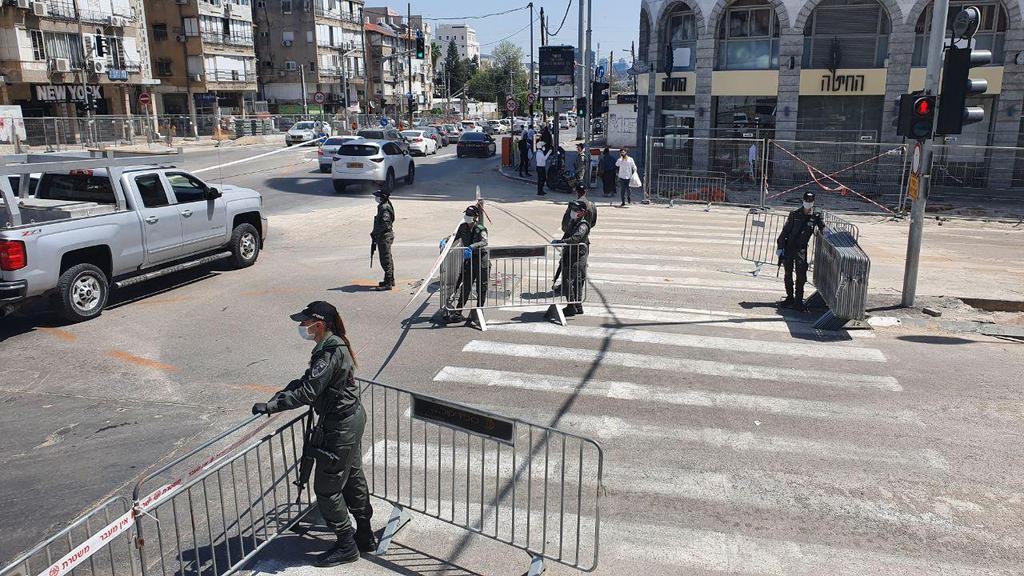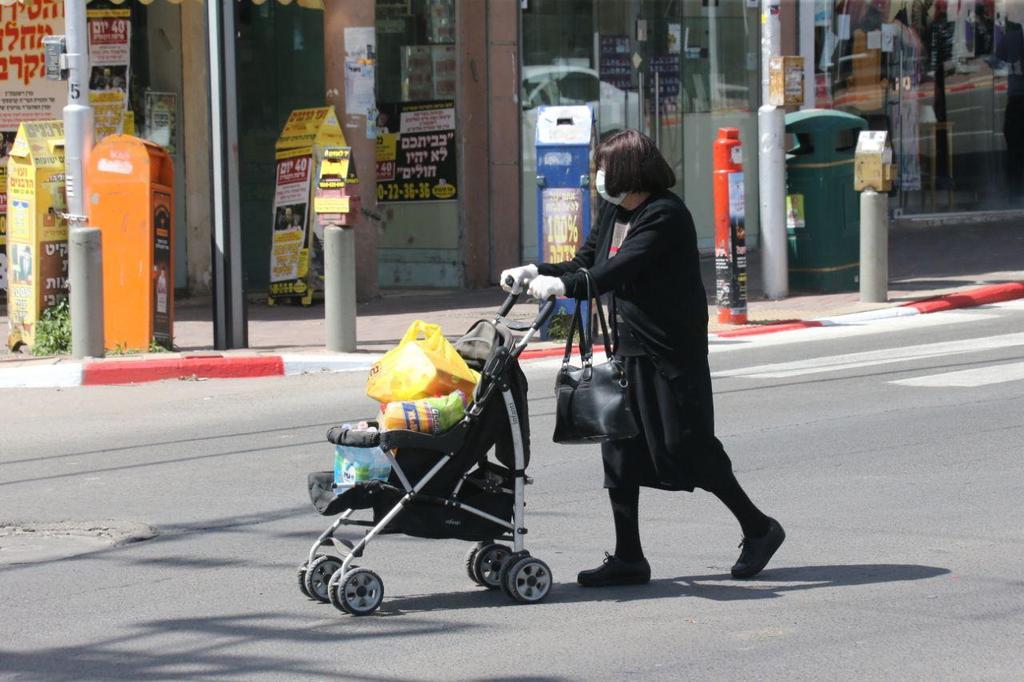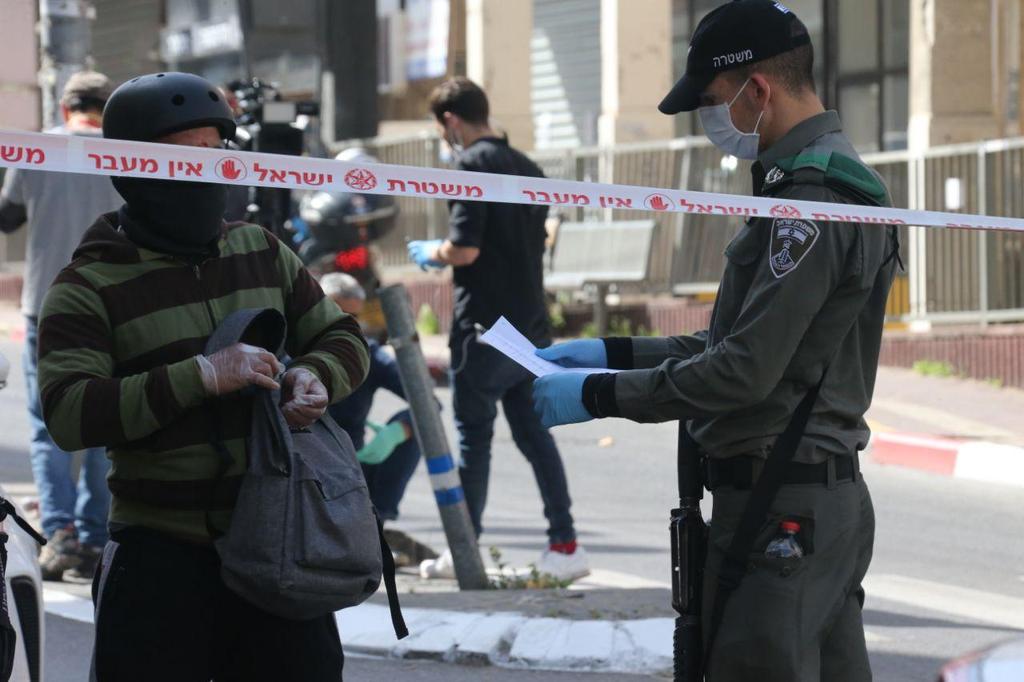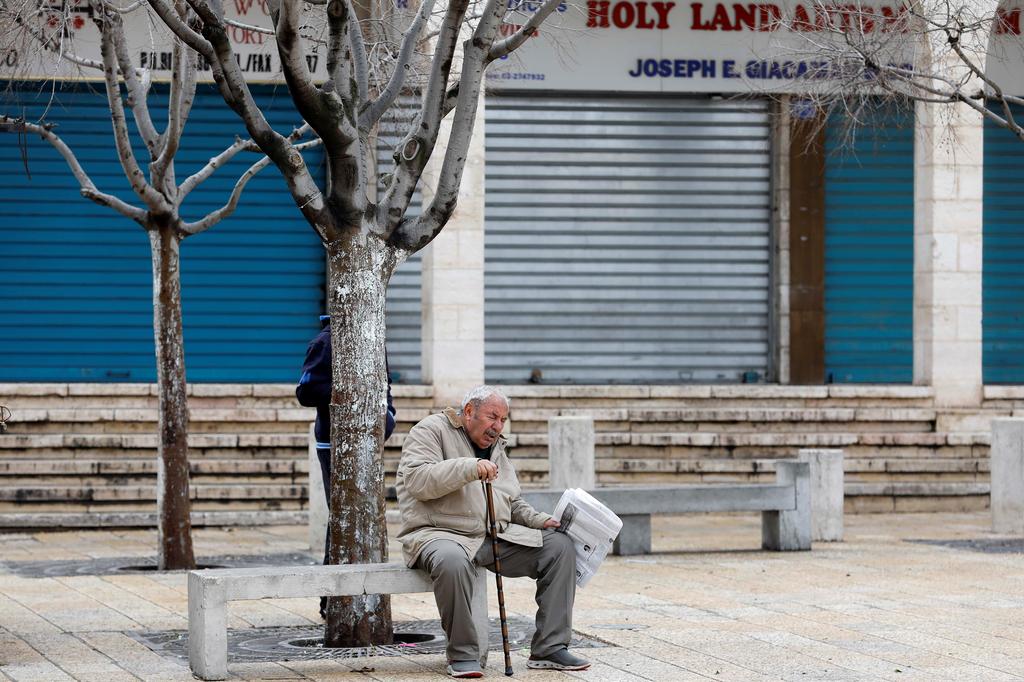Police threw up metal barricades and roadblocks on Friday to enforce a lockdown of Bnei Brak amid soaring coronavirus cases in the predominantly ultra-Orthodox city.
Emergency regulations approved by the cabinet late Thursday declared Bnei Brak a "restricted zone" due to its high rate of infections.
The new designation allows authorities to tighten curbs on public movement.
Police units, wearing surgical masks and gloves, moved swiftly early on Friday to cordon off major intersections around the town and enforce the new rules.
"Bnei Brak is on lockdown, as of this morning, and police will prevent any movements in or out of the city," police spokesman Micky Rosenfeld said.
"People are only allowed in or out for medical reasons or medical support," Rosenfeld added.
"People are only allowed in or out for medical reasons or medical support," he said.
Medical experts estimate that as many as 38% of Bnei Brak's 200,000 residents are infected with coronavirus and that the town could soon account for as many as 30% of cases in Israel's 8.7 million population.
This is due to Bnei Brak's population density, which officials say is almost 100 times higher than the national average.
Many residents are poor and some have heeded rabbis who, distrusting the state, spurned anti-virus measures.
5 View gallery
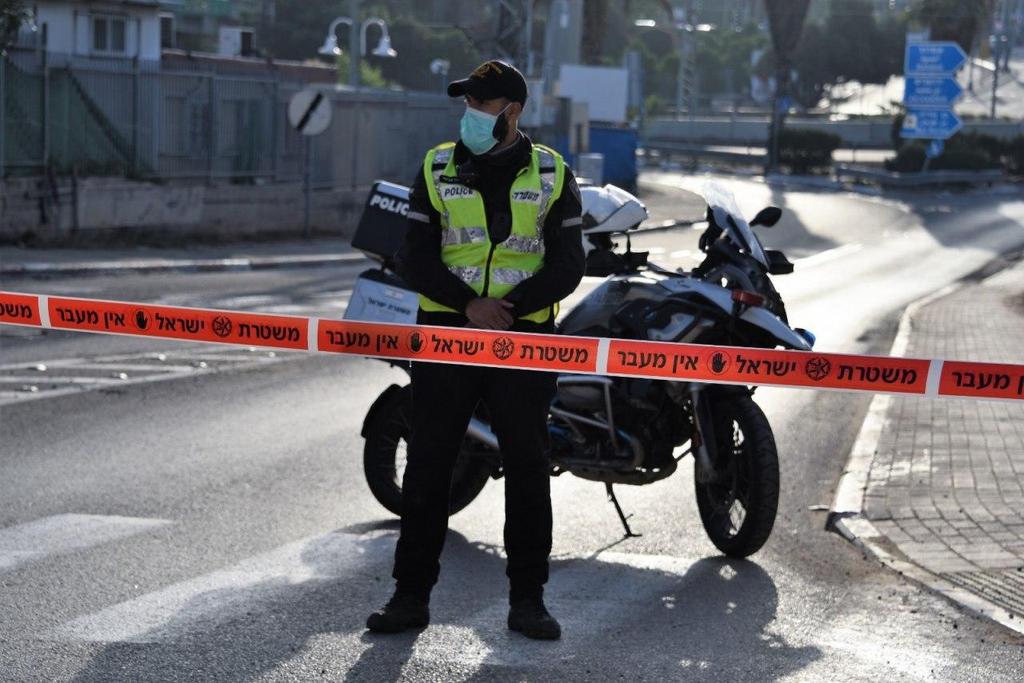

A police officer mans a checkpoint at the entrance to Bnei Brak
(Photo: Israel Police)
With the elderly especially prone to the illness, the IDF plans to evacuate 4,500 people aged 80 and above in the town, and place them in isolation in hostels requisitioned by the armed forces.
Tight curbs have confined Israelis to their homes, forcing businesses to close and sending unemployment over 24%.
In the West Bank, Palestinian President Mahmoud Abbas on Thursday night extended a state of emergency for another month, starting April 4.
The order was issued by presidential decree last month after a coronavirus outbreak in Bethlehem which forced closure of the Church of the Nativity, the traditional birthplace of Jesus.


